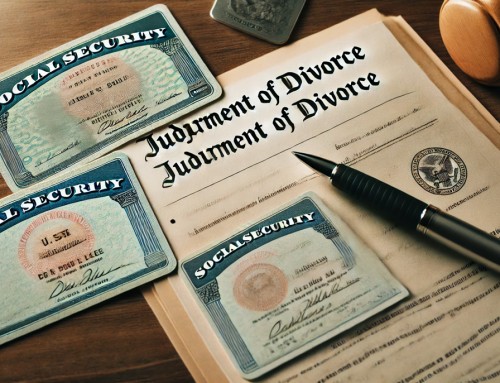 Hal and Sheree had been dating for several years when they decided to get married. Neither had been married before, and they did not have any children, although they agreed they would like to someday. While they wanted to get married right away, they had to wait for a Judge to approve their marriage application, and it was taking three to six months for that to happen.
Hal and Sheree had been dating for several years when they decided to get married. Neither had been married before, and they did not have any children, although they agreed they would like to someday. While they wanted to get married right away, they had to wait for a Judge to approve their marriage application, and it was taking three to six months for that to happen.
Does this sound ridiculous? Of course it does. In the post DOMA United States, consenting adults do not need the permission of a court to get married. So why then should these same adults need a Judge to decide if and when they can end their marriage? Yet we allow that to happen every day!
Why should a Judge have anything to say about how a couple can divide their assets and liabilities, support each other and raise their children if that couple has all of these issues worked out? I believe it is time to start asking this question.
To be clear, I am not talking about allowing a couple to divorce without first reaching an agreement that resolves these issues. I am only saying that for those couples who have reached such an agreement, why should they have to submit it to a judge for “approval” and incur the substantial cost in time and money that doing so involves. (See “The Cost of Divorce”)
The proper role of a judge in the United States is to decide matters that litigants are not able to resolve by themselves. This applies to the criminal justice system where a judge is called on to make sure the process is fair to all involved, and also applies when there is a contract dispute between parties, or when someone is injured due to the negligence of another, and can’t resolve the matter between themselves.
But whenever parties to a dispute resolve the matter, they do not need to ask a judge to “approve” their settlement, except perhaps when there is a minor involved. Why then would a judge be involved in approving a divorce if consenting adults have resolved everything and therefore do not have a dispute? Even if the agreement contains a provision for child support, a parent can always file a petition seeking to modify that agreement if he or she finds that the amount agreed to is inadequate to meet the needs of the child.
Why can’t a couple simply execute and file a straightforward document that states that they have resolved all of the issues relating to the distribution of their assets and liabilities, support, and the parenting of any children and are ending their marriage?
I would be very interested to know if anyone can provide a good reason for why we allow such a system in a free country. Please share your thoughts in the comments box below.
Share with Friends:
Need More Information?
To schedule a free phone or video consultation, complete and submit the form below, email us at [email protected], or call 518-529-5200.






Interesting question Daniel, especially when juxtaposed against how easy it is for couples to marry. In cases where there are no children the only reason I can see for a judge’s “approval” is to make sure one of the spouses hasn’t been pressured by the other … and I’m not sure that a judge can necessary asses that. In MA uncontested divorces without children are pretty much “rubber-stamped” in a short (15 minute) hearing. In cases where there are children, I think it is important that issues of parenting and child support are defined and approved with the best interests of the children in mind.
Yes thank you Daniel, your article speaks to what makes mediation a positive experience vs litigation. And thank you too Alan for your comment. I had worked as a licensed marriage & family therapist in MA with children of divorcing families and in probate for many years before becoming a certified mediator. My mediation training was given by both a lawyer and a social worker. I think the field is moving in a spectrum from inexpensive do it yourself on-line vs. expensive collaborative litigation.
Since my baseline belief from MA is uncontested divorce makes sense, that fiscal/ property resources are best spent on future well being of children & both parties, it is best to offer support to ensure couples reach agrerments, vs fueling angry expensive lengthy misery. It is shocking in NY how long and expensive the process of divorce still is for people unfamiliar with mediation.